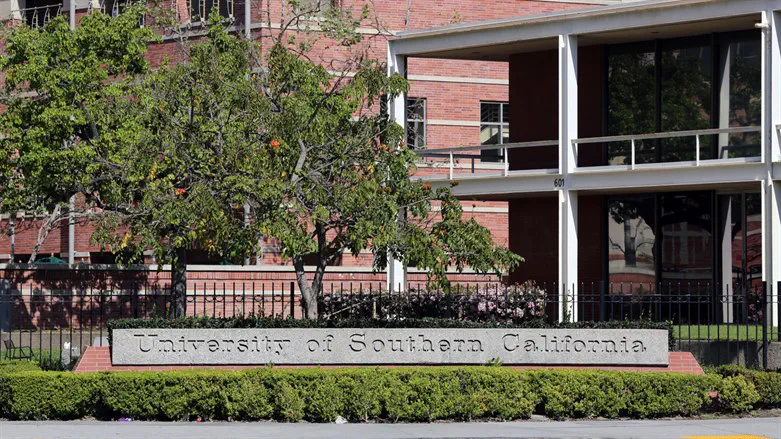
New measures introduced by the University of Southern California (USC) to combat campus antisemitism have come under fire from the Zionist Organization of America, who accused the university of “continuing [its] weak and inadequate response to campus antisemitism.”
President Carol Folt announced the new measures in a letter earlier in the month addressed to members of the USC Jewish community.
The steps will include an Advisory Committee on Jewish Life and Jewish representation in diversity, equity and inclusion (DEI) efforts.
“Unfortunately, the president’s letter reflects a continuing failure to acknowledge the depth of the antisemitism problem at USC,” said ZOA President Morton Klein and Susan Tuchman, the Director of ZOA’s Center for Law & Justice.
They noted that “a USC student threatened to murder ‘Zionists’ and praised the murder of Jews, and yet President Folt’s letter does not condemn the student and her conduct, and does not make it clear that any student who makes antisemitic threats will be punished.”
Klein and Tuchman sharply criticized the fact that Folt’s letter – directed only to “USC’s Jewish community and supporters” – did not “accurately describe the problems that led to the letter.”
Blasting the administrator for referring only to “recent antisemitic and anti-Zionist posts on social media” while omitting the actual facts of the serious antisemitic incidents that led to the need for the letter and the implementation of measures against antisemitism, they remarked that the specific incident in question involved posts by a USC student “that they were not just antisemitic and anti-Zionist but also physically threatening and dangerous.”
“It would have been more meaningful if the president’s letter had been addressed to the entire USC community, so that everyone would understand that antisemitism is a serious and ongoing problem at USC and that USC is finally committed to addressing it,” they said.
They added: “President Folt wrongly touted ‘USC’s reputation as a supportive and welcoming environment for our Jewish community,’ failing to acknowledge that there is a deeply troubling history of antisemitism problems at USC. So much so, that it led the Simon Wiesenthal Center to include USC on its annual Global Antisemitism Top Ten List for 2021 – and USC bears the shameful distinction of being the only school on the list.”
Noting that in 2020, USC student Rose Ritch was “tormented for months by other students, simply because she is a proud Jew and Israel supporter” and that she was forced to resign from student government “for the sake of her physical and emotional safety and well-being,” they stressed that “there is no indication that her bullies suffered any consequences for their misconduct, and USC never even publicly condemned them.”
Klein and Tuchman condemned USC’s plan to combat antisemitism for not containing any “concrete and meaningful steps” to respond to the existing antisemitic problems on campus.
“A student who publicly declared her desire to kill every Zionist and praised the murder of Jews remains a serious danger to the community. Yet she is still a student at USC – and to the ZOA’s knowledge, remains a diversity, equity and inclusion senator for USC’s Viterbi School of Engineering,” they said. “A truly impactful response to the current antisemitism problem would consist of the following.”
They demanded that Fold issue a message to the entire USC community “acknowledging that antisemitism has been a persistent problem at USC, and that USC is finally committed to addressing it.”
“The statement should condemn the student and her dangerous and frightening social media posts and make it clear that any student who engages in antisemitic threats or harassment will be harshly punished,” they said. “USC should waste no more time and finally adopt the International Holocaust Remembrance Alliance (IHRA) working definition of antisemitism, and then notify the USC community that it is doing so and why.”
They remarked that in June ZOA partnered with 30 other organizations to send Folt a letter asking her to adopt the IHRA definition of antisemitism to which she did not respond.
“It is obvious that USC is in need of this useful and widely accepted guide to understanding how antisemitism is expressed today, including when it relates to Israel, so that USC can start truly effectively addressing this ongoing and serious problem on its campus,” they said.
“The ZOA is deeply disappointed in the members of the Jewish and pro-Israel community who applauded the steps that USC said it would be taking. Creating committees, considering campus climate surveys, and taking pledges are not enough to address the dangerous and persistent antisemitism at USC. Much more is needed – and now – and all of us should be insisting on it. Otherwise, USC will be under no pressure to take any truly serious and meaningful steps to condemn antisemites, hold them accountable, and eliminate this ugly anti-Jewish bigotry on the campus.”
